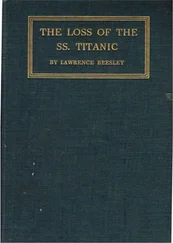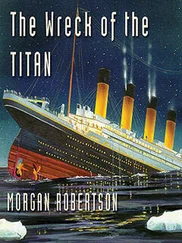Theodore Dreiser - The Titan
Здесь есть возможность читать онлайн «Theodore Dreiser - The Titan» весь текст электронной книги совершенно бесплатно (целиком полную версию без сокращений). В некоторых случаях можно слушать аудио, скачать через торрент в формате fb2 и присутствует краткое содержание. Жанр: Классическая проза, на английском языке. Описание произведения, (предисловие) а так же отзывы посетителей доступны на портале библиотеки ЛибКат.
- Название:The Titan
- Автор:
- Жанр:
- Год:неизвестен
- ISBN:нет данных
- Рейтинг книги:5 / 5. Голосов: 1
-
Избранное:Добавить в избранное
- Отзывы:
-
Ваша оценка:
- 100
- 1
- 2
- 3
- 4
- 5
The Titan: краткое содержание, описание и аннотация
Предлагаем к чтению аннотацию, описание, краткое содержание или предисловие (зависит от того, что написал сам автор книги «The Titan»). Если вы не нашли необходимую информацию о книге — напишите в комментариях, мы постараемся отыскать её.
The Titan — читать онлайн бесплатно полную книгу (весь текст) целиком
Ниже представлен текст книги, разбитый по страницам. Система сохранения места последней прочитанной страницы, позволяет с удобством читать онлайн бесплатно книгу «The Titan», без необходимости каждый раз заново искать на чём Вы остановились. Поставьте закладку, и сможете в любой момент перейти на страницу, на которой закончили чтение.
Интервал:
Закладка:
He was most unctuous and pleading.
Cowperwood understood this quite as well as Gotloeb, if not better. He was not at all satisfied with the thought of obtaining a beggarly twenty-year extension for his giant schemes when cities like Philadelphia, Boston, New York, and Pittsburg were apparently glad to grant their corporations franchises which would not expire for ninety-nine years at the earliest, and in most cases were given in perpetuity. This was the kind of franchise favored by the great moneyed houses of New York and Europe, and which Gotloeb, and even Addison, locally, were demanding.
“It is certainly important that we get these franchises renewed for fifty years,” Addison used to say to him, and it was seriously and disagreeably true.
The various lights of Cowperwood’s legal department, constantly on the search for new legislative devices, were not slow to grasp the import of the situation. It was not long before the resourceful Mr. Joel Avery appeared with a suggestion.
“Did you notice what the state legislature of New York is doing in connection with the various local transit problems down there?” asked this honorable gentleman of Cowperwood, one morning, ambling in when announced and seating himself in the great presence. A half-burned cigar was between his fingers, and a little round felt hat looked peculiarly rakish above his sinister, intellectual, constructive face and eyes.
“No, I didn’t,” replied Cowperwood, who had actually noted and pondered upon the item in question, but who did not care to say so. “I saw something about it, but I didn’t pay much attention to it. What of it?”
“Well, it plans to authorize a body of four or five men—one branch in New York, one in Buffalo, I presume—to grant all new franchises and extend old ones with the consent of the various local communities involved. They are to fix the rate of compensation to be paid to the state or the city, and the rates of fare. They can regulate transfers, stock issues, and all that sort of thing. I was thinking if at any time we find this business of renewing the franchises too uncertain here we might go into the state legislature and see what can be done about introducing a public-service commission of that kind into this state. We are not the only corporation that would welcome it. Of course, it would be better if there were a general or special demand for it outside of ourselves. It ought not to originate with us.”
He stared at Cowperwood heavily, the latter returning a reflective gaze.
“I’ll think it over,” he said. “There may be something in that.”
Henceforth the thought of instituting such a commission never left Cowperwood’s mind. It contained the germ of a solution—the possibility of extending his franchises for fifty or even a hundred years.
This plan, as Cowperwood was subsequently to discover, was a thing more or less expressly forbidden by the state constitution of Illinois. The latter provided that no special or exclusive privilege, immunity, or franchise whatsoever should be granted to any corporation, association, or individual. Yet, “What is a little matter like the constitution between friends, anyhow?” some one had already asked. There are fads in legislation as well as dusty pigeonholes in which phases of older law are tucked away and forgotten. Many earlier ideals of the constitution-makers had long since been conveniently obscured or nullified by decisions, appeals to the federal government, appeals to the state government, communal contracts, and the like—fine cobwebby figments, all, but sufficient, just the same, to render inoperative the original intention. Besides, Cowperwood had but small respect for either the intelligence or the self-protective capacity of such men as constituted the rural voting element of the state. From his lawyers and from others he had heard innumerable droll stories of life in the state legislature, and the state counties and towns—on the bench, at the rural huskings where the state elections were won, in country hotels, on country roads and farms. “One day as I was getting on the train at Petunkey,” old General Van Sickle, or Judge Dickensheets, or ex-Judge Avery would begin—and then would follow some amazing narration of rural immorality or dullness, or political or social misconception. Of the total population of the state at this time over half were in the city itself, and these he had managed to keep in control. For the remaining million, divided between twelve small cities and an agricultural population, he had small respect. What did this handful of yokels amount to, anyhow?—dull, frivoling, barn-dancing boors.
The great state of Illinois—a territory as large as England proper and as fertile as Egypt, bordered by a great lake and a vast river, and with a population of over two million free-born Americans—would scarcely seem a fit subject for corporate manipulation and control. Yet a more trade-ridden commonwealth might not have been found anywhere at this time within the entire length and breadth of the universe. Cowperwood personally, though contemptuous of the bucolic mass when regarded as individuals, had always been impressed by this great community of his election. Here had come Marquette and Joliet, La Salle and Hennepin, dreaming a way to the Pacific. Here Lincoln and Douglas, antagonist and protagonist of slavery argument, had contested; here had arisen “Joe” Smith, propagator of that strange American dogma of the Latter-Day Saints. What a state, Cowperwood sometimes thought; what a figment of the brain, and yet how wonderful! He had crossed it often on his way to St. Louis, to Memphis, to Denver, and had been touched by its very simplicity—the small, new wooden towns, so redolent of American tradition, prejudice, force, and illusion. The white-steepled church, the lawn-faced, tree-shaded village streets, the long stretches of flat, open country where corn grew in serried rows or where in winter the snow bedded lightly—it all reminded him a little of his own father and mother, who had been in many respects suited to such a world as this. Yet none the less did he hesitate to press on the measure which was to adjust his own future, to make profitable his issue of two hundred million dollars’ worth of Union Traction, to secure him a fixed place in the financial oligarchy of America and of the world.
The state legislature at this time was ruled over by a small group of wire-pulling, pettifogging, corporation-controlled individuals who came up from the respective towns, counties, and cities of the state, but who bore the same relation to the communities which they represented and to their superiors and equals in and out of the legislative halls at Springfield that men do to such allies anywhere in any given field. Why do we call them pettifogging and dismiss them? Perhaps they were pettifogging, but certainly no more so than any other shrewd rat or animal that burrows its way onward—and shall we say upward? The deepest controlling principle which animated these individuals was the oldest and first, that of self-preservation. Picture, for example, a common occurrence—that of Senator John H. Southack, conversing with, perhaps, Senator George Mason Wade, of Gallatin County, behind a legislative door in one of the senate conference chambers toward the close of a session—Senator Southack, blinking, buttonholing his well-dressed colleague and drawing very near; Senator Wade, curious, confidential, expectant (a genial, solid, experienced, slightly paunchy but well-built Senator Wade—and handsome, too).
“You know, George, I told you there would be something eventually in the Quincy water-front improvement if it ever worked out. Well, here it is. Ed Truesdale was in town yesterday.” (This with a knowing eye, as much as to say, “Mum’s the word.”) “Here’s five hundred; count it.”
Читать дальшеИнтервал:
Закладка:
Похожие книги на «The Titan»
Представляем Вашему вниманию похожие книги на «The Titan» списком для выбора. Мы отобрали схожую по названию и смыслу литературу в надежде предоставить читателям больше вариантов отыскать новые, интересные, ещё непрочитанные произведения.
Обсуждение, отзывы о книге «The Titan» и просто собственные мнения читателей. Оставьте ваши комментарии, напишите, что Вы думаете о произведении, его смысле или главных героях. Укажите что конкретно понравилось, а что нет, и почему Вы так считаете.










